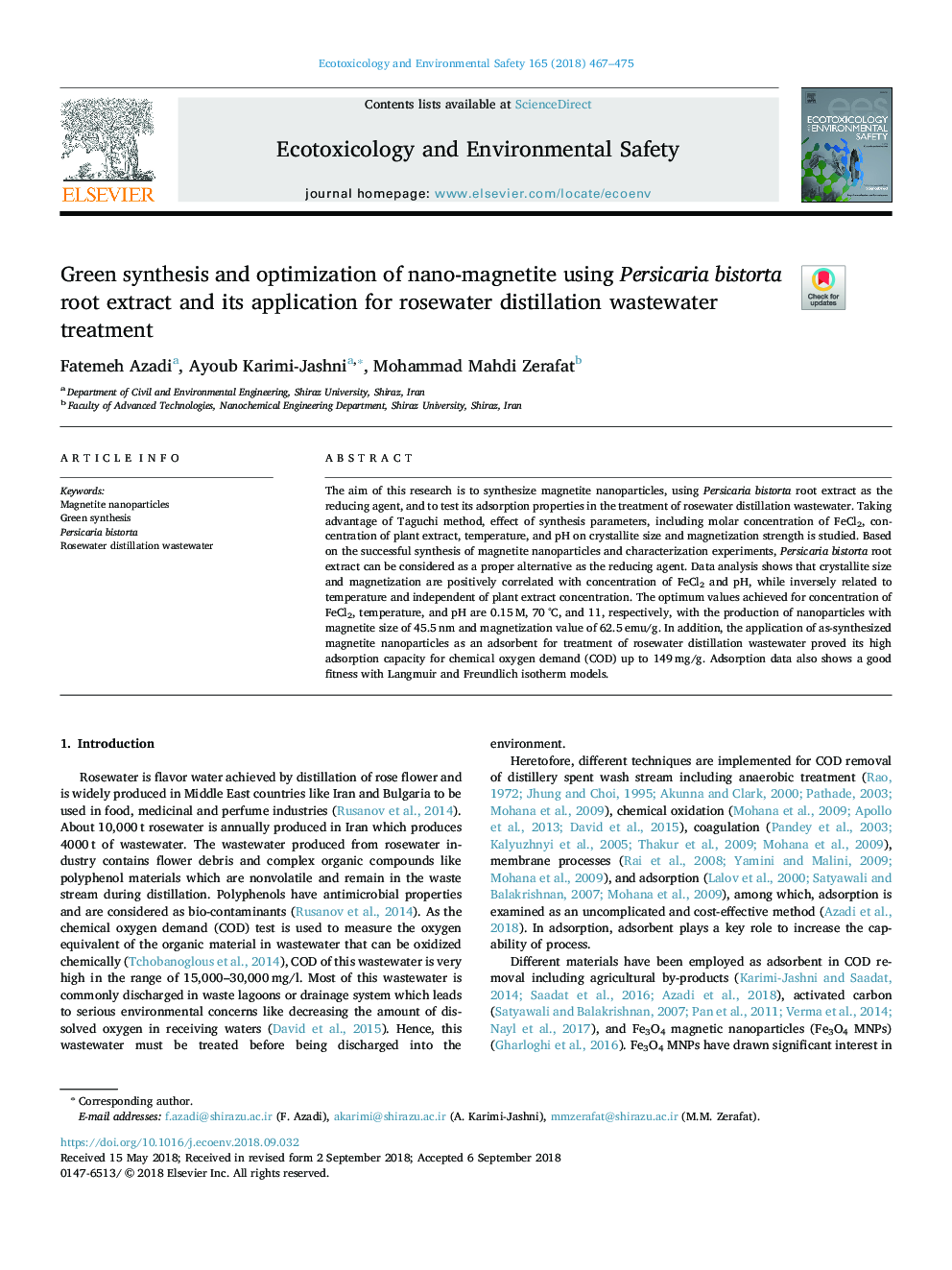| Article ID | Journal | Published Year | Pages | File Type |
|---|---|---|---|---|
| 10144469 | Ecotoxicology and Environmental Safety | 2018 | 9 Pages |
Abstract
The aim of this research is to synthesize magnetite nanoparticles, using Persicaria bistorta root extract as the reducing agent, and to test its adsorption properties in the treatment of rosewater distillation wastewater. Taking advantage of Taguchi method, effect of synthesis parameters, including molar concentration of FeCl2, concentration of plant extract, temperature, and pH on crystallite size and magnetization strength is studied. Based on the successful synthesis of magnetite nanoparticles and characterization experiments, Persicaria bistorta root extract can be considered as a proper alternative as the reducing agent. Data analysis shows that crystallite size and magnetization are positively correlated with concentration of FeCl2 and pH, while inversely related to temperature and independent of plant extract concentration. The optimum values achieved for concentration of FeCl2, temperature, and pH are 0.15â¯M, 70â¯Â°C, and 11, respectively, with the production of nanoparticles with magnetite size of 45.5â¯nm and magnetization value of 62.5â¯emu/g. In addition, the application of as-synthesized magnetite nanoparticles as an adsorbent for treatment of rosewater distillation wastewater proved its high adsorption capacity for chemical oxygen demand (COD) up to 149â¯mg/g. Adsorption data also shows a good fitness with Langmuir and Freundlich isotherm models.
Related Topics
Life Sciences
Environmental Science
Environmental Chemistry
Authors
Fatemeh Azadi, Ayoub Karimi-Jashni, Mohammad Mahdi Zerafat,
